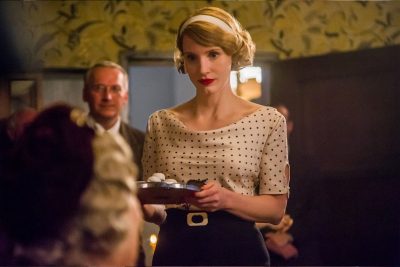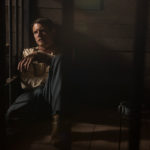
There are more than a few films in existence that center around the events of the Holocaust. Some of them, such as “Schindler’s List” and “Sophie’s Choice” have garnered tremendous critical acclaim for their depictions of genocide. Now, in light of the current Syrian refugee crisis, director Niki Caro’s “The Zookeeper’s Wife” is illuminating the true story of the Zabinski family, who saved hundreds of Jews in the Warsaw ghetto.
In the midst of World War II, the Zabinski’s zoo is bombed and overtaken by the German army, rife with untrustworthy characters amid an intimidating group of solemn, uniformed men. After losing many of their beloved animals to a series of graphic bombings and deliberate shootings for meat, the Zabinskis hide a desperate friend in their attic. Soon afterward, they begin a deliberate mission to rescue those taken to the ghetto, functioning as something of an intermediary location for Jewish refugees until they can be placed into more permanent safe houses.
The situation is, at one point, called a “zoo for people.” Although the circumstances could be described more delicately, it also seems appropriate. Hiding the displaced Jews allows the Zabinskis to extend their caring, compassionate actions to people and utilize resources that would otherwise go to waste.
As a Holocaust film, the fictionalized adaptation of a true story is excessively graphic. For audiences with a weak stomach or tender state of mind, viewing repetitive bombings, forced animal mating and horrific living conditions can be extremely triggering and alarming material. Its rating of PG-13 seems too gentle for the deeply disturbing images that remain throughout the film, and the destruction of property and lives is difficult to watch.
The film spares no details in depicting the horrendous conditions under which the Zabinskis continued to provide for and care for others, and while the faint of heart may often feel the need to turn away from the screen, the dramatic elements ultimately further the emphasis on the significance of all that the Zabinskis did. Despite several opportunities to leave Warsaw for a safer city, they stayed to save those who could not save themselves, even amid manipulation and several attacks on their livelihood.
Certainly, the visual elements of the film are well-directed and supply the tragic context for the plot, but it is the acting — especially of the leads — which carries the work into emotionally impactful territory.
Jessica Chastain plays the titular character, Antonina Zabinski, to perfection, even adopting a subtle yet noticeable accent which plays to the accuracy of the film. Her role is fundamental to the story, as she forges kindhearted, warm connections with each of the people she houses. If there is any flaw in the film, it is that the title does not grant enough credit and autonomy to such a fundamental figure. Her expressive face, often the sole subject of the screen, offers sensations of solace, compassion and gentility that make the brutality of the situation more bearable.
Additionally, Chastain shows an intimate connection to the animals from the opening scenes. The use of special effects and CGI in the film was minimal, and her striking ability to work with the various zoo animals of the movie adds a decidedly enchanting and captivating element to an otherwise tragic story.
The Zabinskis are the center of the film, as it was their actions that drive the plot and their interactions which provide a complex exploration of intimacy and family in the midst of a traumatic crisis. Nevertheless, it is the refugees, saved from the ghetto but still living in constant fear, that offer an insightful look at the humanity of the situation. Urszula, a young girl (Shira Haas) traumatized by abuse, blossoms as she draws and plays with a rabbit while in hiding. Her transformation is a glimmer of hope in the desolation of the Holocaust.
The film contains elements of nearly every emotion throughout its two-hour run, from fear and sorrow to joy and relief. For viewers seeking to cry of happiness, sadness, excitement and terror, “The Zookeeper’s Wife” is one to elicit a tear or two.




